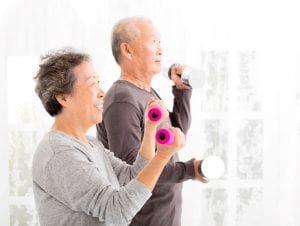
Touch is ubiquitous throughout our lives. As newborns, it’s the first sense to develop and it provides much of our initial knowledge of the world. As we grow, we experience touch in a myriad of forms: cuddling, hugging, kissing, massage, and even petting a stuffed animal. [Read more…]


 More than four years after the first humans became infected with the SARS-CoV-2 virus, scientists understand more than ever before about how COVID-19 affects people. Beyond respiratory symptoms, COVID can lead to nausea, vomiting, diarrhea, rashes, and even eye infections. We’ve also learned that people can experience long COVID, which involves continued symptoms for months or even years after they initially get sick.
More than four years after the first humans became infected with the SARS-CoV-2 virus, scientists understand more than ever before about how COVID-19 affects people. Beyond respiratory symptoms, COVID can lead to nausea, vomiting, diarrhea, rashes, and even eye infections. We’ve also learned that people can experience long COVID, which involves continued symptoms for months or even years after they initially get sick. 
 It’s not an exaggeration to say that America runs on coffee—some 400 million cups a day, according to
It’s not an exaggeration to say that America runs on coffee—some 400 million cups a day, according to  We’ve known for decades that smoking leads to serious health problems including cancer, lung and heart disease, stroke, and diabetes. Despite the health risks, quitting smoking is a significant challenge for most people because the nicotine in cigarettes is incredibly addictive.
We’ve known for decades that smoking leads to serious health problems including cancer, lung and heart disease, stroke, and diabetes. Despite the health risks, quitting smoking is a significant challenge for most people because the nicotine in cigarettes is incredibly addictive. If you aren’t already convinced that
If you aren’t already convinced that 


 Food insecurity—or not having access to enough quality food—is a significant risk factor for binge eating disorder, according to a new systematic review published earlier this year.
Food insecurity—or not having access to enough quality food—is a significant risk factor for binge eating disorder, according to a new systematic review published earlier this year. 

